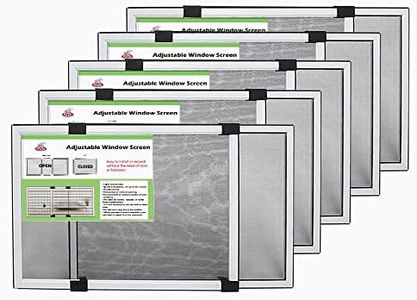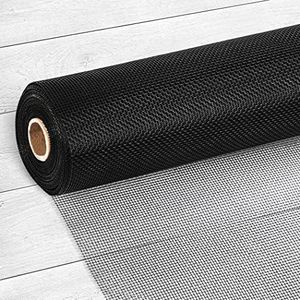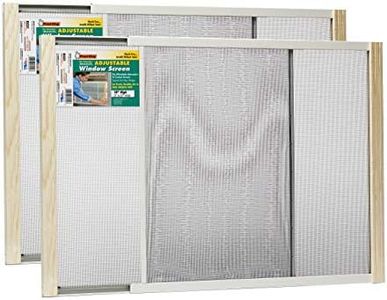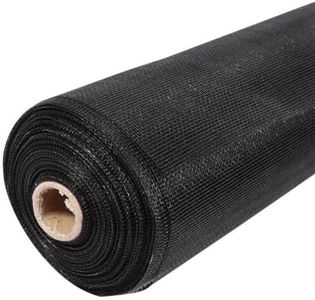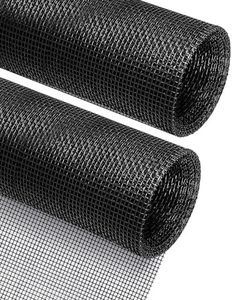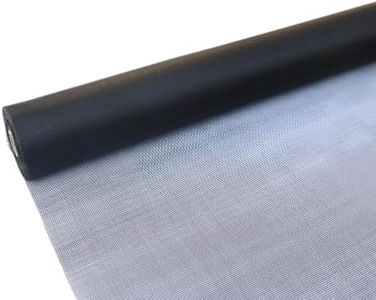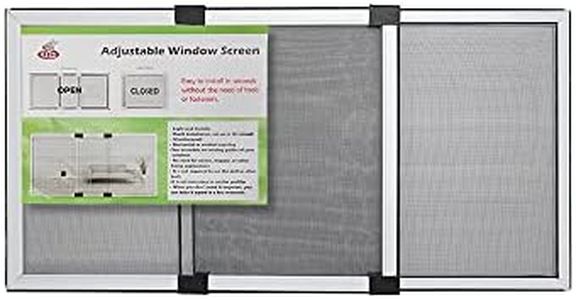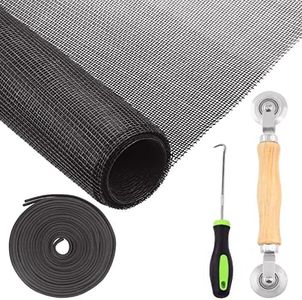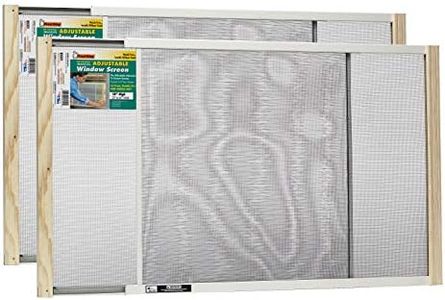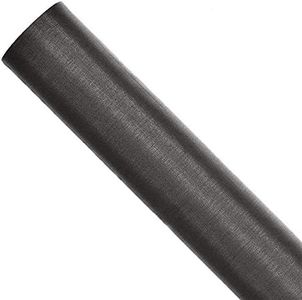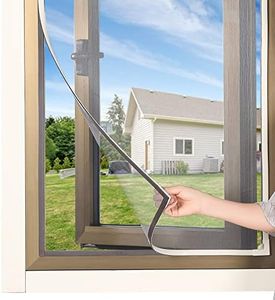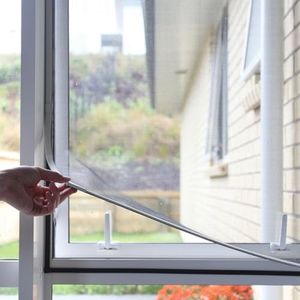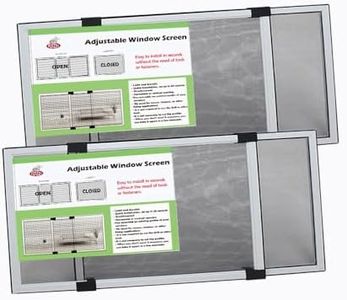We Use CookiesWe use cookies to enhance the security, performance,
functionality and for analytical and promotional activities. By continuing to browse this site you
are agreeing to our privacy policy
10 Best Window Screens
From leading brands and best sellers available on the web.By clicking on a link to a third party's website, log data is shared with that third party.
Buying Guide for the Best Window Screens
When choosing window screens, it's all about finding the right balance between keeping unwanted pests out, letting fresh air in, and ensuring the screen fits both your windows and your lifestyle. You'll want to consider how visible or 'invisible' you want the screen to be, how much airflow you need, and whether there are any special needs like pet resistance or added privacy. Understanding the key features and how they fit your home environment will make sure you get the most out of your purchase.MaterialThe material of a window screen determines its strength, durability, visibility, and airflow. Common materials include fiberglass, aluminum, and specialty options like stainless steel or pet-resistant fabrics. Fiberglass is flexible and less expensive, but can tear more easily. Aluminum screens are stronger and resist rust, making them good for long-term use, but they can dent. More robust materials like stainless steel offer additional security or pet-friendly options, but may be less subtle visually. Choose fiberglass for a budget-friendly or temporary solution, aluminum for a balance of durability and airflow, and specialty or heavy-duty materials for homes with pets or extra security concerns.
Mesh SizeMesh size refers to the number of openings per square inch on the screen. Standard screens usually have around 18x16 or 18x14 openings, which block most pests and provide good airflow. Tighter meshes like 20x20 are used for places with smaller bugs, such as no-see-ums or gnats, while larger openings may offer better airflow but let tiny insects in. If you live in an area with lots of small bugs, opt for a finer mesh, but if you're more concerned about letting in as much air as possible, a standard or wider mesh may be better.
Visibility (Clarity)Visibility refers to how much the screen affects your view through the window. Some screens are designed to be 'invisible' from a distance and offer clear outward visibility while others have a more noticeable weave. High-visibility screens use finer threads and advanced weaving to almost disappear, which is great if your window looks out onto a pretty view or if you want more natural light. Think about your priorities: if you want a more open feel or have scenic landscapes, go for a high-visibility mesh. For windows where the view isn't important, standard meshes will do the job.
DurabilityDurability takes into account how well the screen stands up to everyday wear, weather, handling, and potential damage from pets or children. A durable screen will last longer, resist tears, and need less frequent replacing. Some screens are labeled tear-resistant or pet-resistant and are made with thicker or specially designed threads. Consider your household: if you have pets, children, or windows that get lots of use, a tougher, more durable screen makes sense. For windows that aren't opened often, standard durability could be enough.
Frame Type and FitThe frame of a window screen holds it in place and affects how well it fits your window. Frames can be fixed, adjustable, or retractable, and are often made from aluminum, vinyl, or other weather-resistant materials. Fixed frames are custom-fitted to your window size, while adjustable types can expand or contract to fit different windows, and retractable screens roll away when not in use. To decide, consider both how often you open your windows and whether you need to remove screens for cleaning or storage. Measure your windows carefully and choose a style that fits both your window and your usage habits.
Additional Features (Pet Resistance, UV Protection, Security)Some screens come with extra features like pet resistance, UV blocking, or added security. Pet-resistant screens are reinforced to stand up to scratching and pawing, UV screens reduce sun glare and limit fading of interior furnishings, and security screens are made from stronger materials to deter break-ins. These features are important if you have specific needs: choose pet resistance if you have animals, UV protection for windows with lots of sun, or security features for ground-floor or accessible windows.
